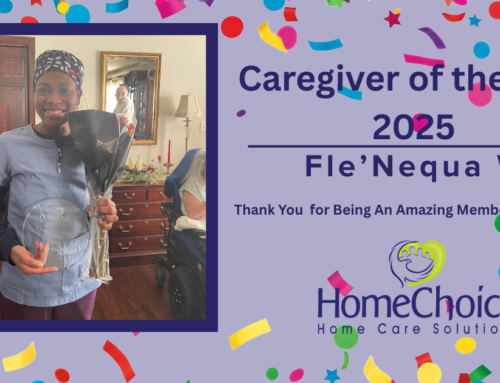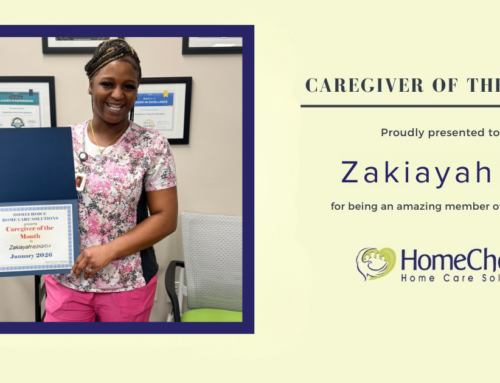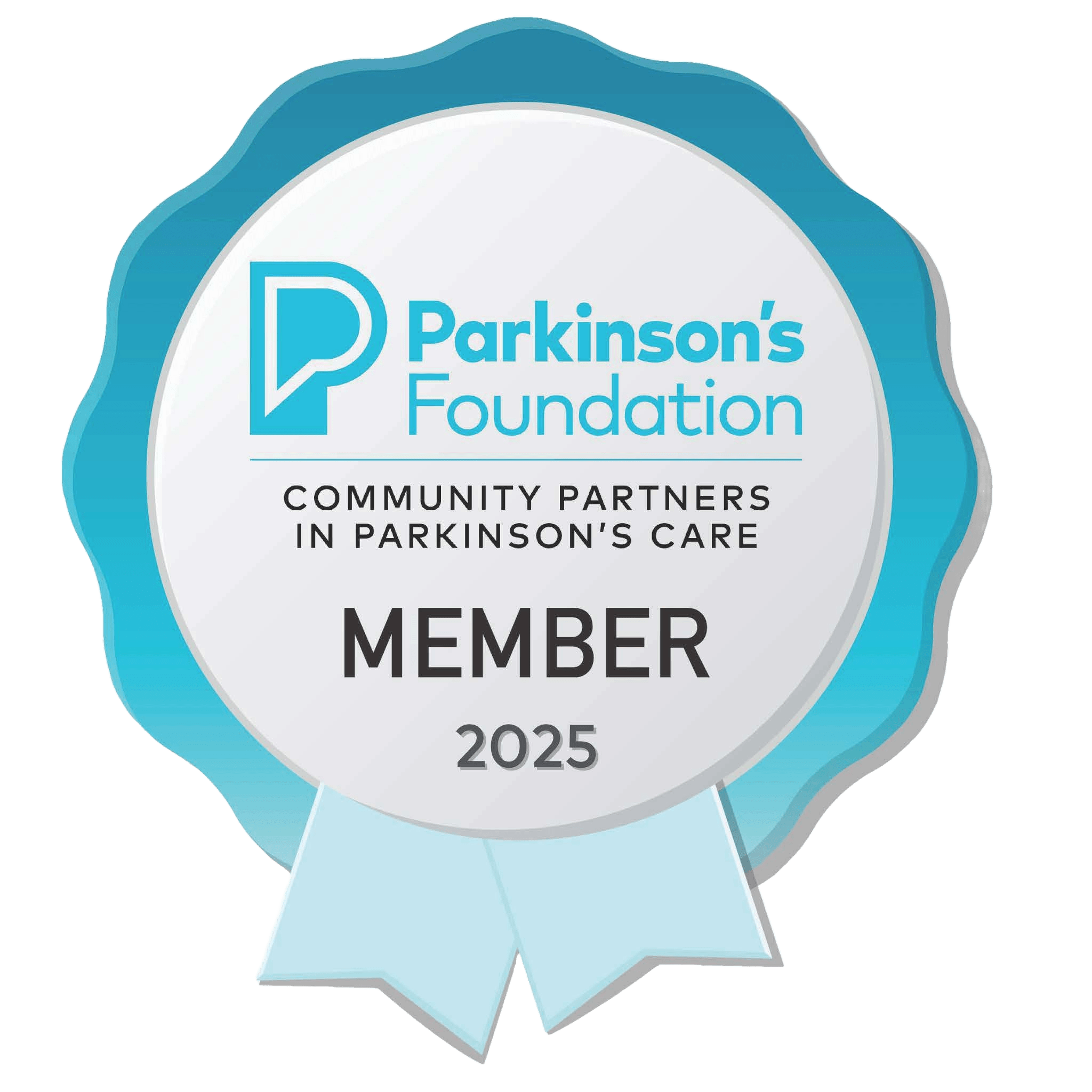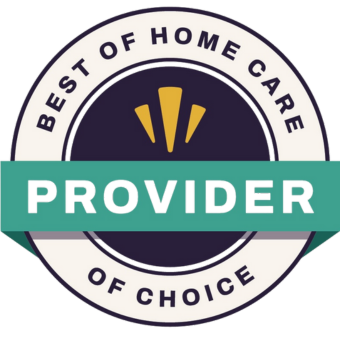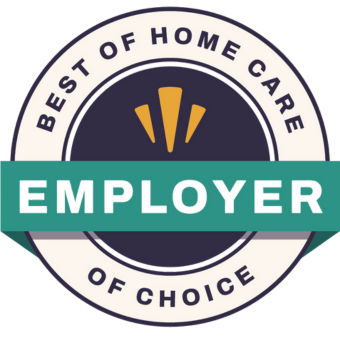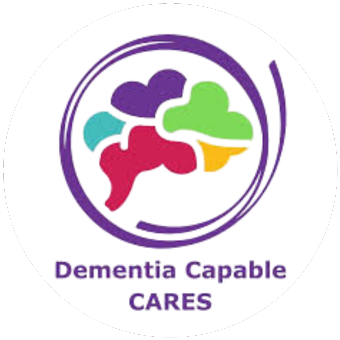Caregiver jobs across the U.S. have never been more plentiful. As the population ages and preferences change, the demand for caregivers will continue to rise. Whether helping seniors navigate daily life, people recuperating from surgeries, or providing emotional support for those with disabilities, caregivers play a vital role in society. Would you like to be a professional caregiver but aren’t sure what the job entails? Read on to explore the job duties of a caregiver and why it could be the best career decision you’ll ever make.
The Different Types of Caregiver Jobs
Professional caregivers serve many roles while assisting aging, ill, and disabled individuals. Caregiver job titles include:
- Certified Nursing Assistant (CNA): While working in various environments, CNAs provide direct care and support under the supervision of nurses and doctors, making them an integral part of any healthcare team.
- Personal Care Aide (PCA): PCAs assist clients with daily tasks and personal care, such as grooming, bathing, and preparing meals. They often work with aging-in-place seniors or disabled individuals who need help maintaining their independence. These caregivers do not need formal certification, making the job an accessible entry point for anyone interested in caregiving.
- Home Health Aide: While HHAs provide in-home support for activities of daily living (ADLs), many have additional medical training. HHAs are notably valuable for clients transitioning from a hospital or skilled nursing facility back to their private residences.
- Independent Caregiver: Independent caregivers typically work directly for clients or families rather than through agencies. Because they are self-employed, this role requires practical interpersonal skills, motivation, and a knack for understanding individual client needs and preferences.
- Agency Supplied Caregiver: These caregivers typically work for home care agencies and are assigned to clients based on need and availability. Employers often provide additional training and ongoing professional development to ensure their caregivers meet specific standards.
Where Might a Caregiver Work?
Caregivers can seek employment in a variety of settings, each offering unique opportunities and challenges. Here are some typical environments:
- Nursing Homes: Caregivers work alongside medical professionals, supporting residents with daily activities while ensuring their comfort and safety.
- Hospitals: Some caregivers work in hospital settings, assisting patients with mobility, hygiene, and rehabilitation exercises.
- Private Clinics: Caregivers in private clinics may assist with routine checkups and procedures, offering direct care and support to patients before, during, and after medical appointments.
- Home Care: In-home caregivers support clients in their private residences. This role may include personal care, meal preparation, medication supervision, companionship, and household management tasks.
- Home Health Care: In addition to assisting clients with ADLs, home health caregivers are responsible for performing basic medical tasks, such as monitoring vital signs and administering medications, which is crucial for clients recovering from an illness or surgery.
- Assisted Living Facilities: Caregivers at assisted living communities provide personalized support to residents who may need help managing their routines and maintaining their independence.
What Are the Job Duties of a Caregiver?
Regardless of their specific role or workplace, caregivers share several common duties. These are some of the most important ones:
- Physical Support: Helping clients with daily tasks such as bathing, grooming, dressing, and ambulation is foundational to the caregiver’s role. This physical support helps maintain the client’s dignity and independence.
- Medication Supervision: Caregivers often remind clients to take their medications on time or assist with administering them as prescribed. Furthermore, they watch for side effects and complications, ensuring clients stay safe and healthy.
- Health Monitoring: Caregivers often monitor their clients’ health, tracking vital signs and documenting changes in physical or mental conditions. They report observations to supervisors, family caregivers, and medical staff as needed.
- Emotional Support: Beyond physical assistance, caregivers provide emotional support and companionship. They engage clients in meaningful conversation, participate in activities promoting mental well-being, and alleviate loneliness and social isolation. This essential caregiving aspect is vital in enhancing the quality of life for many clients.
- Household Management: Depending on where they work, caregivers may assist with various light housekeeping tasks, such as cleaning, laundry, and meal preparation. These household management activities help create a safe, hygienic, and comfortable environment for the client.
A Day in the Life of an In-Home Caregiver in Raleigh
Using home care as an example, a typical in-home visit might begin with the caregiver arriving at a client’s home in the morning. After exchanging greetings, the caregiver may assist the client with personal hygiene and help them get dressed. Next, they might prepare breakfast, help the client take their medications, and open the previous day’s mail.
Next, the caregiver might help with various tasks as the day unfolds, including grocery shopping, facilitating a light exercise routine, or transporting the client to medical appointments or leisure activities. Once back home, the caregiver may prepare a nutritious lunch, clean up, and help the client settle down for a nap, ensuring they are safe and comfortable. While the client is asleep, the caregiver can use the time to perform household management tasks, such as folding laundry, emptying the dishwasher, or preparing a food shopping list.
As the day draws to a close, the caregiver enters notes into a smart device and submits a report to their supervisor. They bid the client farewell and head home, knowing they’ve made a difference in another human being’s life.
Why Become an In-Home Caregiver?
Compared to other settings, working in home care offers several advantages that can elevate the caregiving experience. Here are five things in-home caregivers love most about their jobs:
Personal Fulfillment
Home care enables caregivers to form deep, meaningful connections with clients. This close relationship promotes a sense of accomplishment and emotional satisfaction as caregivers positively impact their clients’ lives.
Flexible Hours
In-home caregivers often enjoy enhanced scheduling flexibility. Many agencies offer day, evening, part-time, or full-time schedules, empowering caregivers to manage their personal commitments, resulting in a healthy work-life balance.
Individualized Care and Support
In-home caregivers can tailor their approach to suit each client’s unique needs and preferences. This individualized care and support can lead to a more gratifying experience for both the caregiver and the client.
Job Security
For reasons that include an aging population and personal preferences, the demand for in-home caregivers is projected to increase over the next five to ten years. This growing need means job security for caregivers in the field, making home care a virtually recession-proof profession.
Career Growth and Development
Many home care agencies encourage their caregivers to gain additional qualifications and training, which can lead to skill specialization and advanced certifications. Continuous education and personal development can be a winning combination, opening numerous career doors in the healthcare industry.
In conclusion, becoming a professional caregiver can be far more rewarding than any other job you’ve had before. Understanding a caregiver’s various roles, settings, and job duties is vital for anyone considering this exciting career path. Whether you work as a CNA, Home Health Aide, or in-home caregiver, your contributions will profoundly impact the lives of others. If you have a compassionate heart and the will to succeed, a caregiving career may be the perfect fit for you!
Searching for Caregiver Jobs in Raleigh? Join Our Winning Home Care Team.
While the job duties of a caregiver may vary, in-home caregiver jobs elevate the caregiving experience to a whole new level. At HomeChoice Home Care Solutions in Raleigh, we understand that our caregivers are the lifeblood of our organization. Due to our expanding client load, we are currently seeking qualified candidates to fill several exciting caregiving roles. While proudly serving the Raleigh, Durham, Wake County, Johnston County, Wake Forest, Chapel Hill, and North Carolina communities, we support clients and families with a comprehensive lineup of dignified home care services including Companionship Care, Personal Care, and Respite Care.
As a highly valued member of the HomeChoice Home Care Solutions team, you’ll enjoy a fast-paced, positive work environment where open communication is valued and hard work is rewarded. We also offer competitive pay and benefits, flexible scheduling, ongoing caregiver skills training, and career advancement opportunities galore. No matter your experience level or education, we’d love to hear from you! To learn more about us and our caregiver jobs, visit www.homechoicehomecare.com.


